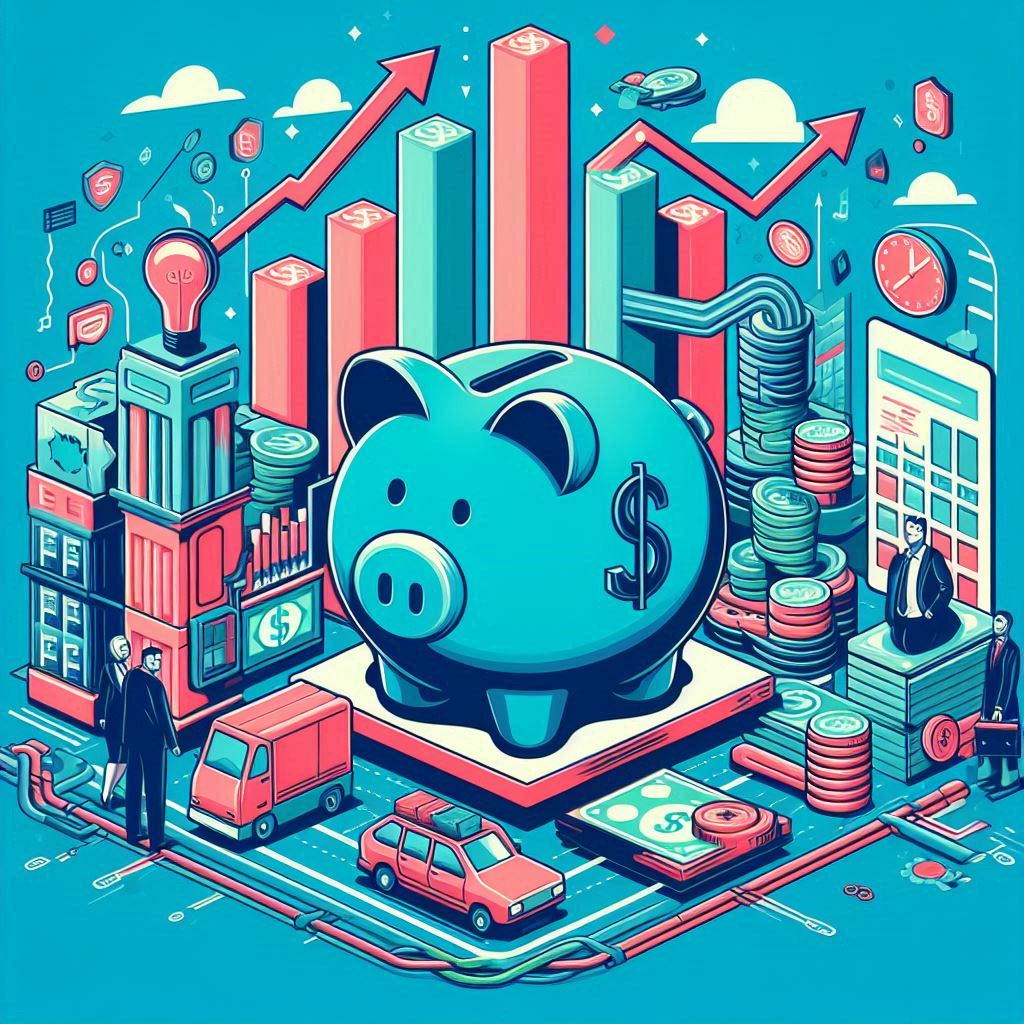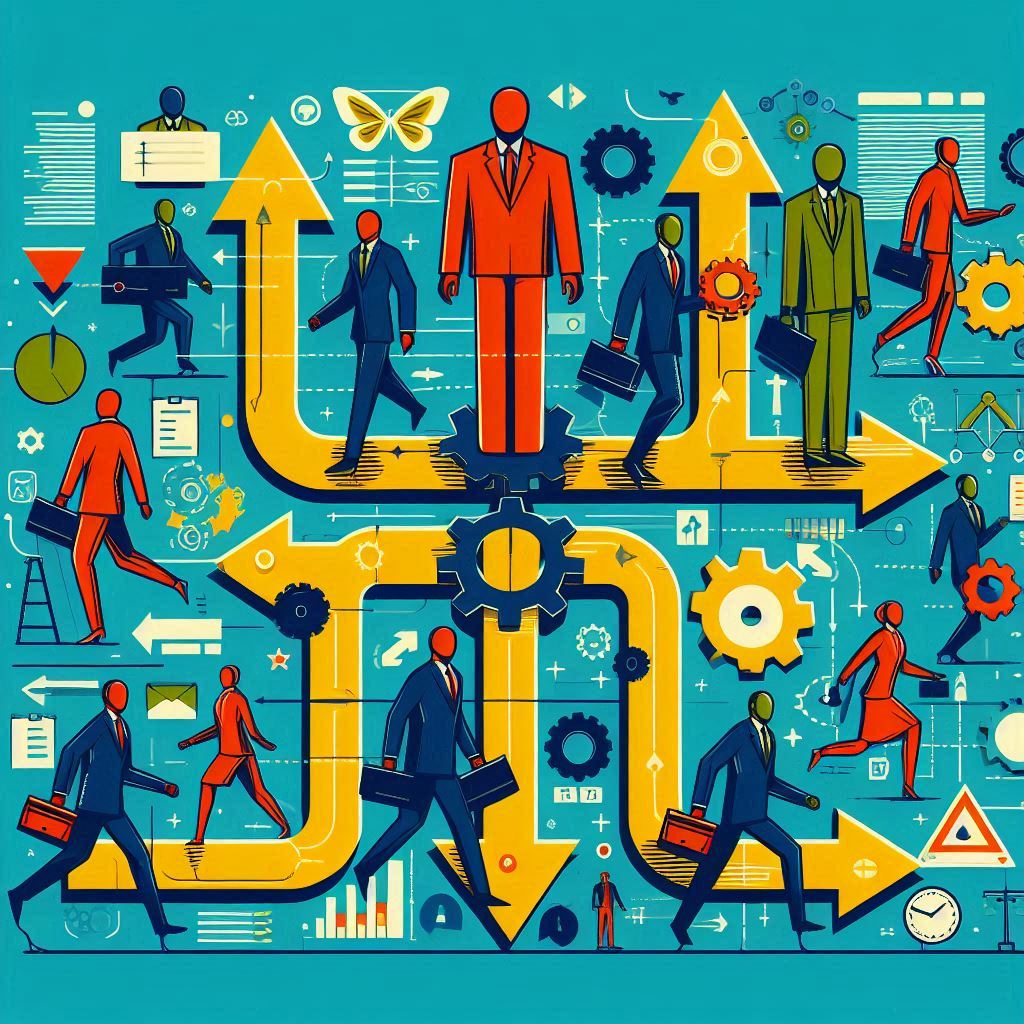Why the Gig Economy Rocks: The Big Benefits
The gig economy is changing how we work. It’s not just for millennials. More people are finding new freedom and flexibility in their careers with freelance, part-time, and contract work. Whether you’re a stay-at-home parent, retiree, or looking to make extra cash, the gig economy offers significant benefits for workers of all ages. You can set your schedule and explore different industries. There’s a lot to love about it.
Exploring the Gig Economy Landscape
Definition and Growth of the Gig Economy
The gig economy is about short-term contracts or freelance work instead of permanent jobs. It often involves using digital platforms and offers workers a lot of flexibility and independence. The gig economy used to be mainly about ride-sharing and short-term rentals, but now it includes a wide range of skilled labor and professional services.
The gig economy’s growth is due to technological advances, changing attitudes about work-life balance, and a desire for more control and independence. This has affected traditional employment and industries by creating a more diverse and adaptable labor force, challenging conventional employer-employee relationships, and pushing companies to be more flexible in their hiring practices. The gig economy has led to the rise of specialized professionals for specific projects, changed the idea of job stability and security, and made companies rethink benefits and work-life balance in different industries and occupations.
Notable Gig Economy Platforms
Notable gig economy platforms offer professionals various work opportunities, diversifying their income. These platforms empower individuals to create a personalized career path by providing flexibility in project selection, work schedules, and project types. This allows gig workers to cater to their interests and strengths, increasing job satisfaction.
Additionally, these platforms provide access to more potential clients, further diversifying gig workers’ income.
Main Benefits of the Gig Economy for Professionals
Enhanced Flexibility and Independence

Professionals in the gig economy have more flexibility and independence. They can choose their work hours and projects, which helps them create a career path that matches their goals and personal life.
Gig work allows individuals to earn money from various projects and contracts in different industries. This can lead to financial independence and the chance to start their businesses.
In this model, professionals can set their own schedules and work with multiple clients simultaneously, building a more secure and self-sufficient career.
Diversification of Income Streams

Individuals can earn money differently by taking on various tasks or projects from digital platforms like freelance writing, graphic design, or food delivery services. This helps reduce their reliance on a single employer and creates financial stability.
Having multiple sources of income in the gig economy offers numerous advantages. It provides financial security and allows individuals to explore different passions and talents, leading to personal and professional growth. It also provides the flexibility to work on multiple projects simultaneously, increasing overall earning potential.
Businesses can benefit from diversifying their workforce by hiring from the gig economy. This allows access to a larger pool of highly skilled professionals, providing flexibility and scalability when completing projects. It also results in cost savings, as they only pay for services as needed and have access to specialized skill sets.
Forging a Personalized Career Path

Individuals can create career paths in the gig economy by identifying their skills, interests, and strengths. Then, they can look for work opportunities that match their goals using digital platforms and networking. This allows them to work on different client projects, helping them showcase their expertise and build a good reputation. They can also focus on work-life balance and set their schedule for flexibility and independence.
The gig economy offers entrepreneurial opportunities for professionals. They can take on different projects, set prices, and control their workload. This flexibility allows them to have multiple income streams and diverse clients, shaping their careers according to their preferences and aspirations.
Empowerment through Entrepreneurial Opportunities

Participating in the gig economy can empower individuals. It provides flexibility to work independently and pursue various projects for different clients. This model allows for diversifying skills and building a unique portfolio.
The gig economy fosters empowerment and independence through increased autonomy and control over work. It also enables flexible schedules and exploration of different industries. Additionally, it contributes to personalizing career paths by allowing individuals to work with various clients and gain experience in multiple fields. This flexibility lets professionals tailor their careers to their interests and skills for a more fulfilling path.
Key Advantages for Businesses Hiring from the Gig Economy
Economical Savings and Reduced Overhead Costs

Businesses can save money by hiring from the gig economy. Gig workers usually work independently so that companies can cut costs on things like office space and equipment. They can also hire freelancers for specific projects instead of having a full-time staff, which gives them flexibility in managing labor needs. This approach allows businesses to access specialized skills and high-quality work without the long-term commitment of traditional employees.
Access to a Broad Spectrum of Expertise

Businesses can access a wide range of expertise using digital platforms to connect with skilled professionals. On specialized websites, they can find freelancers with diverse skills, like graphic design, web development, marketing, and finance. This allows them to choose gig workers with the specific skills needed for their short-term or long-term projects. Building long-term relationships with successful gig workers can provide a consistent source of expertise.
To attract and retain top-quality gig workers, businesses can offer competitive compensation, professional development, and a positive work environment. They can foster inclusivity, respect individual strengths, and create flexible work arrangements. Prioritizing these aspects can bring diverse expertise and valuable insights to projects, contributing to overall success.
Adaptable Workforce Capacity for Ever-changing Business Needs

By leveraging the gig economy, businesses can quickly meet ever-changing needs. Depending on business demands, this flexible labor force can be scaled up or down as needed. During peak demand periods, businesses can access additional talent, while during slower periods, they can reduce labor costs by utilizing fewer gig workers.
Integrating gig economy talent into the existing workforce is essential. Businesses can establish clear expectations, provide regular feedback, and foster open communication. This creates a collaborative work environment, accommodating full-time and gig workers, and allows for greater adaptability to changing business needs.
Leveraging the gig economy allows businesses to access a larger pool of highly skilled professionals and save money by paying for services as needed. This flexibility and control over work schedules enable companies to respond quickly and remain competitive in a rapidly changing business environment.
How to Secure Top-Quality Gig Economy Talent
Businesses can use different strategies to attract and keep top gig economy talent. These include providing good pay and perks, creating a positive company culture, and offering opportunities for professional growth.
It’s also essential to build strong relationships with gig workers and give them the flexibility to work on projects where they’re skilled. Businesses can stand out by offering unique benefits and perks that other companies don’t have.
Top gig economy talent usually have specialized skills, effective communication, and a history of successful projects. Employers can evaluate these qualities through interviews, checking qualifications and references, and assessing adaptability and problem-solving skills.
Businesses can also use online platforms and professional networks to find and connect with top gig workers.

Vizologi is a revolutionary AI-generated business strategy tool that offers its users access to advanced features to create and refine start-up ideas quickly.
It generates limitless business ideas, gains insights on markets and competitors, and automates business plan creation.


